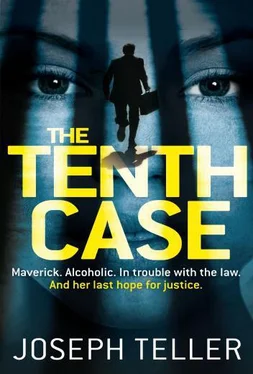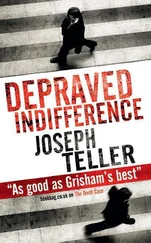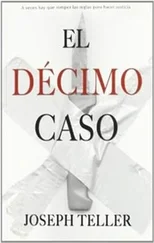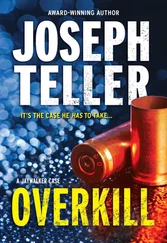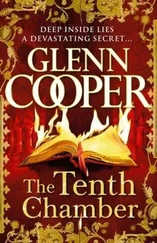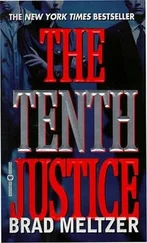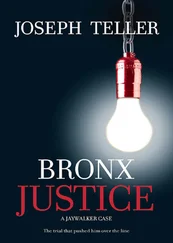Joseph Teller - The Tenth Case
Здесь есть возможность читать онлайн «Joseph Teller - The Tenth Case» — ознакомительный отрывок электронной книги совершенно бесплатно, а после прочтения отрывка купить полную версию. В некоторых случаях можно слушать аудио, скачать через торрент в формате fb2 и присутствует краткое содержание. Жанр: Криминальный детектив, на английском языке. Описание произведения, (предисловие) а так же отзывы посетителей доступны на портале библиотеки ЛибКат.
- Название:The Tenth Case
- Автор:
- Жанр:
- Год:неизвестен
- ISBN:нет данных
- Рейтинг книги:3 / 5. Голосов: 1
-
Избранное:Добавить в избранное
- Отзывы:
-
Ваша оценка:
- 60
- 1
- 2
- 3
- 4
- 5
The Tenth Case: краткое содержание, описание и аннотация
Предлагаем к чтению аннотацию, описание, краткое содержание или предисловие (зависит от того, что написал сам автор книги «The Tenth Case»). Если вы не нашли необходимую информацию о книге — напишите в комментариях, мы постараемся отыскать её.
The Tenth Case — читать онлайн ознакомительный отрывок
Ниже представлен текст книги, разбитый по страницам. Система сохранения места последней прочитанной страницы, позволяет с удобством читать онлайн бесплатно книгу «The Tenth Case», без необходимости каждый раз заново искать на чём Вы остановились. Поставьте закладку, и сможете в любой момент перейти на страницу, на которой закончили чтение.
Интервал:
Закладка:
He retold Samara's life story for them, from being raped in a trailer in Prairie Creek, Indiana, to her escape to Las Vegas, to becoming Mrs. Barry Tannenbaum in New York. He posed the extreme unlikelihood that a woman of her small size and strength, even if she'd wanted to, could have plunged a knife up to the hilt into someone's chest. He pointed out the total absurdity of the notion that she would have then saved the murder weapon, still caked with her husband's blood, as some sort of souvenir for the police to find. He warned them of the terrible danger of convict ing someone on nothing but circumstantial evidence. He exalted the majesty of the presumption of innocence, the logic of placing the burden of proof upon the prosecution, and the special wisdom of a system that demanded proof beyond all reasonable doubt. He reminded them about Alan Manheim and his two hundred and twenty-seven million reasons for having wanted Barry Tannenbaum dead. But even as he did that, he cautioned them not to saddle the defense with the burden of proving Manheim's guilt, or anyone else's. The only burden of proof, he told them over and over again, was squarely upon the prosecu tion. The defense didn't have to prove or disprove anything.
He spoke from the lectern and moved around the court room, returning periodically to where Samara sat. He quoted from the testimony and used the exhibits. His voice rose and fell, and toward the very end he was reduced to a hoarse, gravelly whisper, which served only to accentuate his final words, which he used to beseech the jurors to find Samara not guilty.
Those who made it a habit to show up for Jaywalker summations-and there were literally scores who did exactly that-would afterward agree among themselves that his closing argument on behalf of Samara Tannenbaum had to rank among his very best ever, particularly if one were to consider what he'd been up against. It was crisp, dramatic, well modulated, emotional and extraordinary in every sense imaginable. In a word, it was everything it could possibly have been.
Everything, that is, but good enough.
Tom Burke delivered his summation early that same af ternoon. He began by conceding that "Things aren't always what they seem to be. But," he quickly added, "sometimes they are. " From there he led the jurors through an exhaus tive and methodical review of the evidence that firmly linked Samara to the murder. Her presence at Barry's apart ment right around the time of his death. Their heated argument. Her lies to the detectives the next day. The murder weapon and other items found in her town house, complete with Barry's blood. The life insurance policy, along with Samara's belief that it was the only way she would end up with anything from Barry. And, finally, the fourteen-year-old assault, which, Burke argued, placed Samara's unique signature on Barry Tannenbaum's murder.
Listening to the argument and looking at the jurors, Jaywalker found himself wondering how they could possibly reject Burke's analysis. There was simply no way that they could fail to convict Samara. He was reduced to fantasizing that there might be some closet weirdo on the jury, someone who would refuse to deliberate or might hold out irrationally, leading to an eleven-to-one hung jury and a mistrial. What a win that would be. He started bar gaining with the god he didn't believe in, offering up small sacrifices in exchange for that lone holdout. He would stop drinking. He would start eating three meals a day. He would file his back taxes, visit his daughter, make a dentist appointment, go for that PSA test he kept putting off.
At one point, as quietly as he could, Jaywalker reached for his briefcase. He located his jury folder, slipped his chart out of it and scanned the notes he'd scribbled almost two weeks ago. Twelve names, twelve occupations, twelve sets of notations, ratings and question marks. But, so far as he could tell, no indication of a weirdo among them.
Burke sat down after an hour and a half. As Jaywalker had long ago learned, it generally takes less time to say something than it takes to say nothing.
Judge Sobel took just under an hour to charge the jury. It was quarter of four by the time he finished ruling on the lawyers' objections, exceptions and additional requests. Turning back to the jury box, he announced, "You may now retire to begin your deliberations."
And the butterflies came back.
They came back because that first hour of deliberations was always a dangerous time. If there was going to be an acquittal driven purely by emotion-and by now Jaywalker knew that was the only kind of an acquittal he had a right to hope for-it had to come quickly. It had to come before the jurors had a chance to settle back and begin to analyze the evidence. On the other hand, there were juries that began by taking a preliminary vote to see where everyone stood. Jaywalker could easily imagine this jury deciding to do just that, only to realize that all twelve of them had cast their ballots for conviction.
5:00.
An hour had gone by, and nothing had happened. No quick verdict, either guilty or not guilty. Bit by bit, the but terflies landed, folded their wings and sat still. But Jay walker knew only too well how lightly they slept. The instant there was the slightest noise from the jury room, even if it turned out to be a single buzzer signifying nothing more than a desire for a fresh pitcher of water or a look at some mundane exhibit, the butterflies would take flight again.
5:45.
With six o'clock approaching, the question on all lips was, what was the judge going to do about dinner? Was he going to break for it soon and bring the jury back afterward for more deliberations? Or would he instead let them work for another couple of hours, with the jurors then taken to a hotel immediately following their dinner? Some judges even gave their deliberating juries the option of choosing. Whenever that happened, the jurors would huddle and answer through their foreperson, and Jaywalker would always try to read their response like tea leaves, searching for the tiniest indication that they were close to a verdict, or digging in for lengthy deliberations.
He read everything there was to read. He looked for tips from the court officers, who liked him not only because he was a former DEA agent, but because he was a civil servant at heart, one of them. They hung out by the door to the jury room and usually had a pretty good idea of what was happening on the other side. Were the jurors arguing, fighting, shouting down a dissenting voice? Were they carefully working their way through the testimony, witness by witness? Or had they stopped talking to each other altogether? Jaywalker needed to know. He needed to know which way they were leaning, how they were split, and whether they were making progress or hopelessly divided. If he knew those things, or at least had a pretty good idea, he would know whether to urge the judge to declare a mistrial, or to argue that the jurors should be given more time. And knowing which position to take could make all the dif ference in the world.
He even read lunch orders, Jaywalker did. He'd get the clerk to give him a peek at the list of sandwiches and bev erages the jurors submitted each morning of their seques tration. In one particular case he'd tried a few years back, Jaywalker had come across an order requesting eleven ham-and-Swiss sandwiches on hard rolls, and one peanut butter-and-bacon on light white toast with the crust cut off. Right then he'd known he had a hung jury, eleven to one.
6:10.
Judge Sobel told the lawyers that he intended to let the jury deliberate for another hour before sending them to dinner and a hotel. Jaywalker voiced no objection. As far as he was concerned, the window for a quick emotional ac quittal had already slammed shut. The danger right now was of a Don't-lock-us-up, we'll-reach-a-verdict-soon con viction. He would sweat out every one of the next sixty minutes, he and his butterflies.
Читать дальшеИнтервал:
Закладка:
Похожие книги на «The Tenth Case»
Представляем Вашему вниманию похожие книги на «The Tenth Case» списком для выбора. Мы отобрали схожую по названию и смыслу литературу в надежде предоставить читателям больше вариантов отыскать новые, интересные, ещё непрочитанные произведения.
Обсуждение, отзывы о книге «The Tenth Case» и просто собственные мнения читателей. Оставьте ваши комментарии, напишите, что Вы думаете о произведении, его смысле или главных героях. Укажите что конкретно понравилось, а что нет, и почему Вы так считаете.
